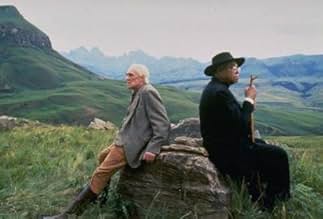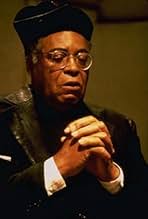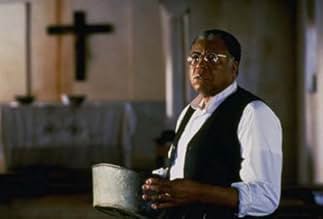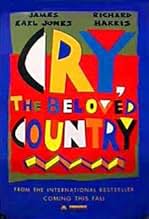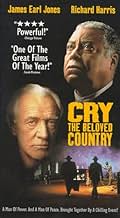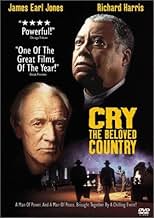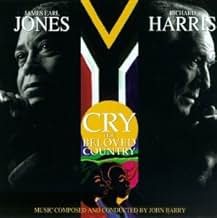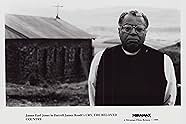Adicionar um enredo no seu idiomaA South African preacher goes to search for his wayward son, who has committed a crime in the big city.A South African preacher goes to search for his wayward son, who has committed a crime in the big city.A South African preacher goes to search for his wayward son, who has committed a crime in the big city.
- Direção
- Roteiristas
- Artistas
- Prêmios
- 1 vitória e 4 indicações no total
- Shebeen Queen
- (as Tembsie Times)
- Direção
- Roteiristas
- Elenco e equipe completos
- Produção, bilheteria e muito mais no IMDbPro
Avaliações em destaque
I once performed in the Kurt Weill opera of the same name. I'm accustomed to having music propel me through the story, but I didn't miss it in this movie. One casting note - probably because of recent trends in NTC (non-traditional casting), most stage shows refer to the racial divide in the opera as "whites" and "coloreds," which, under apartheid, included all non-whites. Whether or not this was intentionally done by the librettist, it gives opera companies the freedom to hire Asian-Americans, African-Americans, and Hispanic-Americans (or Europeans) as the "colored" cast. In the movie, it was starkly white and black. Nevertheless, if you lack any other reason for seeing the movie, see it for the wonderful performances of Jones and Harris.
Religion, politics, faith, healing, mercy and justice- all of these themes are present, but not in an overt, overbearing patronising way.
The two men meet due to unfortunate circumstances related to the activity of their respective sons' in the city, though they have lived in the same country area all of their lives.
James Earl Jones once again renders a bravura performance as the African minister whose son has accidentally killed a white man. One can feel his grief and his burden as he tries to straighten the mess out. His son has confessed but others involved have denied knowledge of the offense.
Richard Harris plays an equally difficult role that of Mr Jarvis the white boy's father. One feels his grief and pain especially when he finds to his surprise that his son had disowned "baaskap," the over-lordship of the white race, something accepted as a given by most whites without a second thought just as the white housewife perfunctorily dismissed the black cleric in priestly garb as if he were a pesty door to door salesman.
Will mercy be extended to the preacher's son who accidentally pulled the trigger and cooperated with authorities or will he suffer the ultimate penalty while accomplices go free? Yet for all the misery the movie, surprisingly without excessive preaching, ends on a flicker of hope for the future.
Você sabia?
- CuriosidadesThe background instrumental music in the movie is the same as the theme song from the movie Zulu (1964).
- Citações
Rev Stephen Kumalo: My brother is greatly changed.
Theophilus Msimangu: But he has some truth on his side.
Rev Stephen Kumalo: "Truth"? But how can he have truth on his side and not God?
Theophilus Msimangu: At least he's got something. Look around. What do you see? Poverty, pain, suffering. Sometimes it is hard even for me to keep faith. Perhaps God is also on his side. Only your brother does not want to know it anymore.
- ConexõesFeatured in 2nd Annual Screen Actors Guild Awards (1996)
Principais escolhas
- How long is Cry, the Beloved Country?Fornecido pela Alexa
Detalhes
- Data de lançamento
- Países de origem
- Idioma
- Também conhecido como
- Cry, the Beloved Country
- Locações de filme
- Empresas de produção
- Consulte mais créditos da empresa na IMDbPro
Bilheteria
- Faturamento bruto nos EUA e Canadá
- US$ 670.727
- Faturamento bruto mundial
- US$ 670.727
- Tempo de duração1 hora 46 minutos
- Cor
- Mixagem de som
- Proporção
- 1.85 : 1
Contribua para esta página



